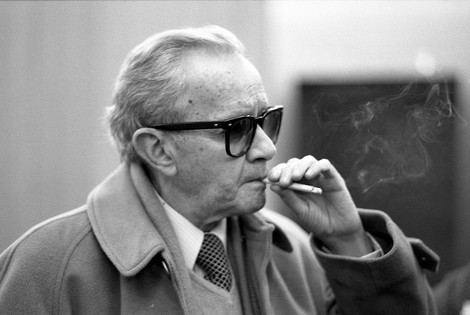Your podcast discovery platform
Curious minds select the most fascinating podcasts from around the world. Discover hand-piqd audio recommendations on your favorite topics.

piqer for: Globalization and politics Global finds
Luis BARRUETO is a journalist from Guatemala. Studied business and finance journalism at Aarhus University in Denmark and City University London.
Juan Rulfo — One Of Mexico's Greatest Writers You May Never Have Heard Of
Mexican Juan Rulfo is regarded as one of the most influential Latin American writers of all times. But outside Spanish-speaking circles he has been largely neglected. In The New York Review of Books, writer Ariel Dorfman wonders why that is.
Rulfo's relative obscurity may be due to the fact that his reputation rests on essentially two books from the 1950s: El Llano en Llamas, a collection of stories, and Pedro Páramo, a novel that narrates the mythical quest of narrator Juan Preciado to find his birthplace, the fictional town of Comala, and his father, the novel's namesake.
Despite this, Rulfo is revered for his groundbreaking style, Dorfman explains. His "minute implacability of matter-of-fact realism", and his ability to "give a lyrical majesty and distinct rhythm to the terse colloquial speech of the poorest Mexican peasants" reshaped Latin American literature.
Facing Death
Death is one of the most common themes in Mexican art. From Frida Kahlo's paintings to popular culture motifs, it is present in many forms of expression as perhaps a way of dealing with widespread violence and loss, even in modern times.
Readers of Rulfo, too, reckon with death as they discover Páramo's story: How the character rose from the dust of a backward childhood to become a toxic but powerful caudillo. With his son, Juan Preciado, readers reckon not only with his father's victims — abandoned women, scattered sons, dead rivals — but with death itself, and its place at the center of the world Paramo helped shape by way of his cruelty and mercilessness.
In his works, Rulfo tells the stories of ordinary men, bandoleros and prisoners, healers, and forgotten communities on the verge of disappearing. It may be hard to empathize with these otherwordly characters' experience, but they speak to more basic tropes of chaos, devastation, and solitude. Along the way, Rulfo also reinvented the forms and foundations of Spanish narrative and story-telling.
